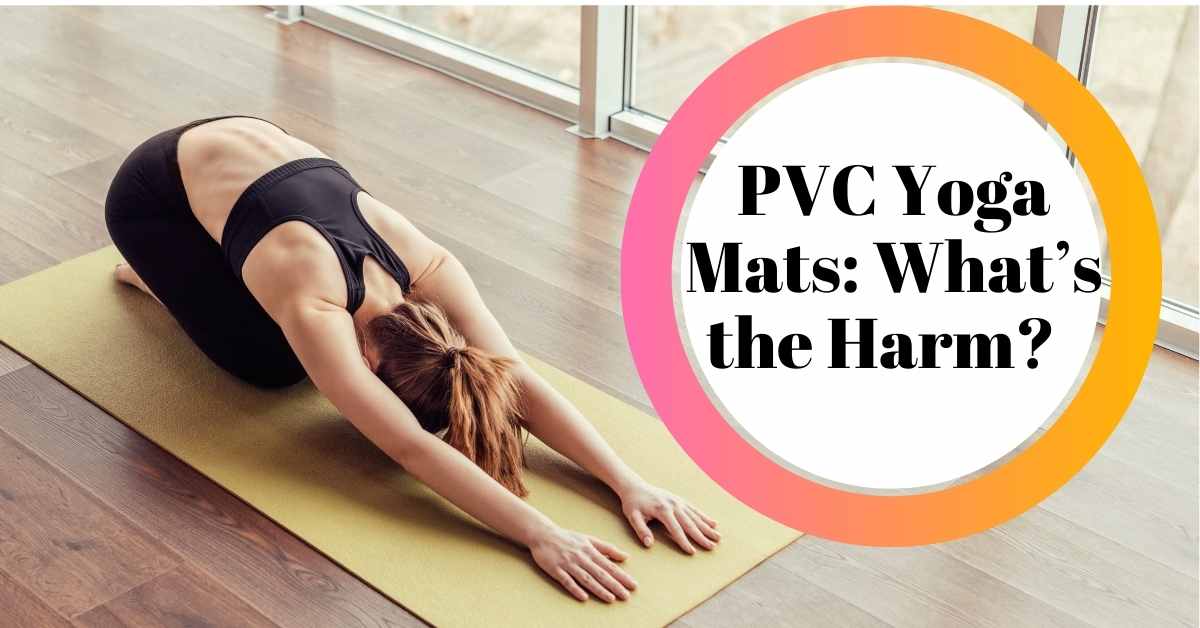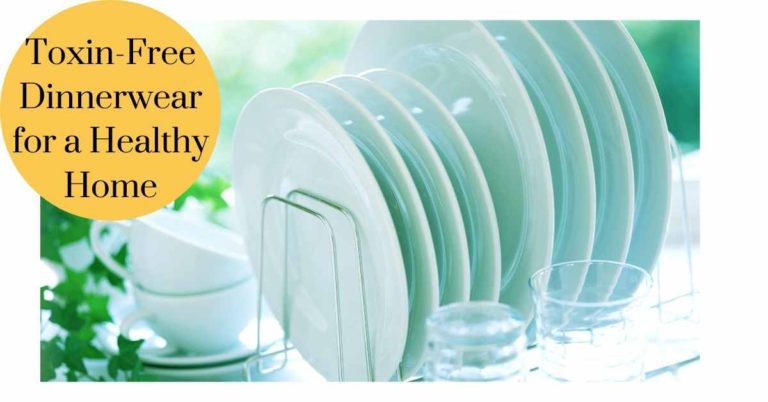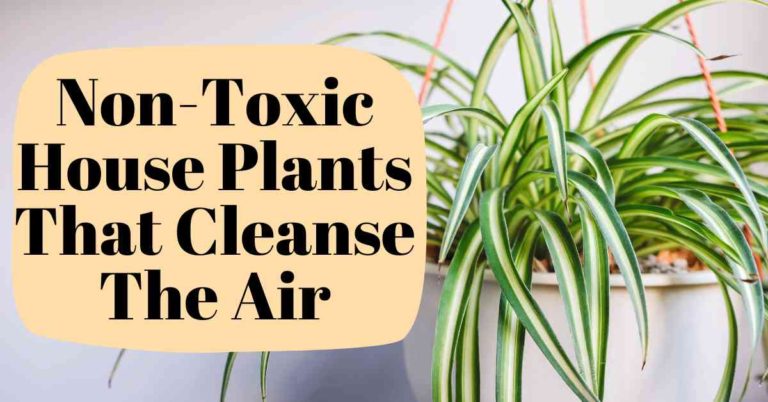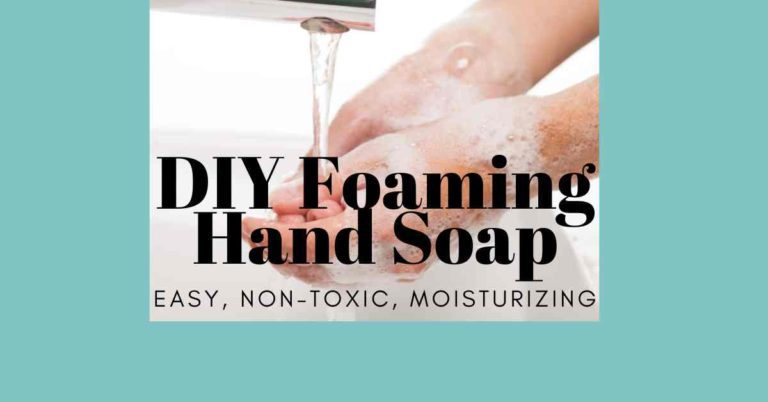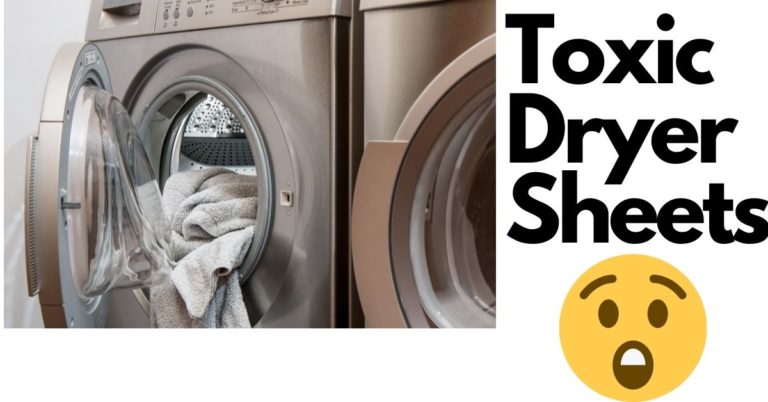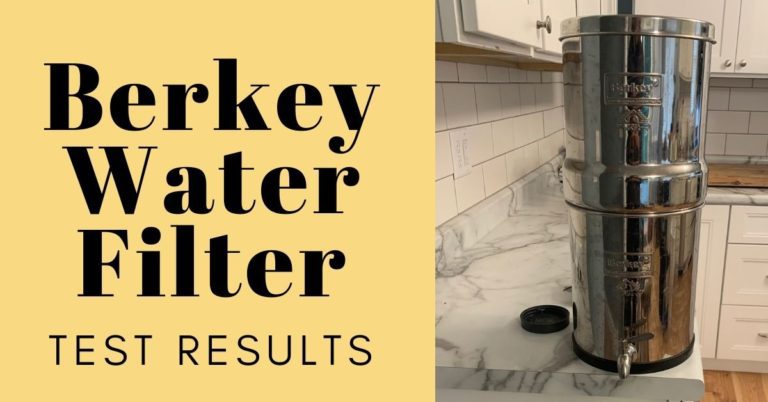Non-Toxic Yoga Mats (PVC-Free!)
I love a good yoga session and chances are you do too! We are not alone in that love, the latest survey I could find estimates that 36 million people practice yoga in the United States. As more and more people become interested in yoga, the market for yoga mats exploded. However, many of the mats on the market are made of PVC, a material that has been linked to health, safety, and environmental concerns. So, what’s a yogi to do? Luckily, there are many companies that make PVC-free, eco-friendly, non-toxic yoga mats.
If you’re looking for a safer, non-toxic, and more environmentally friendly option there are a few materials you can choose from, like rubber, jute, and organic cotton. In this post, we’ll review the concerns with PVC yoga mats and some of the top non-toxic yoga mats on the market.
What is the PVC material in yoga mats?
PVC is polyvinyl chloride which is also known as vinyl. PVC is a plastic and can be hard and rigid (think plumbing pipes) or flexible (think shower curtain lining, rubber ducky toys). It’s a widely used plastic that can be found in hundreds of products, including flooring, furniture, plumbing pipes, packaging, medical devices, rainwear, shoes, shower curtains, toys, yoga mats, and the list goes on.
Is PVC safe for a yoga mat?
There are various health and environmental concerns with all phases of the PVC lifecycle therefore you should try to avoid this material if you are buying a yoga mat.
Production of PVC
Vinyl chloride is used to make PVC and it’s a highly toxic substance. Vinyl chloride tends to be in a gaseous state so exposure would come from breathing it in. However, according to the Agency for Toxic Substances, it’s usually not detectable in urban, suburban, and rural areas unless you lived or worked close to a manufacturing site, hazardous waste site, or landfill. People can be exposed to vinyl chloride in drinking water by contaminated wells. Exposure can cause liver damage, nerve damage, and immune reactions, and can increase cancer risks. Thankfully Vinyl chloride is regulated and you can learn more about the regulations here.
The production of PVC requires a lot of energy and produces harmful emissions. PVC production also creates solid waste and water pollution.
Using PVC Products with Phthalates:
PVC also contains phthalates, which are a group of chemicals used to make plastics more flexible. Most likely if your yoga mat is made from PVC then it contains phthalates. Phthalates have been linked to the following health effects, and to find out more about the studies you can check out my in-depth blog post about phthalates.
- Asthma
- Eczema
- Autistic-like behavior
- Cardiovascular disease
- Infertility
- Decrease in male reproductive health
- Endocrine Disruptor
Disposal of PVC
PVC is not biodegradable, meaning it will never break down in the environment. PVC can be recycled, but only a small percentage of PVC products are actually recycled.
According to the EWG, If PVC plastic is burned (think waste incineration), it forms highly toxic chemicals known as dioxins, which pollute the environment and accumulate in wildlife, fish and livestock.
What is the best non-toxic material for a yoga mat?
There are a few safer, non-toxic alternatives to PVC yoga mats, including mats made of rubber, cork, jute, and organic cotton. The best non-toxic yoga mat will depend on your needs and budget. Choose a mat that’s comfortable and performs well so you can enjoy your yoga practice.
Rubber Yoga Mat
Rubber is a natural material that comes from rubber trees. It’s durable and offers good grip, cushion, and easy to clean. It is also biodegradable. If you have a latex allergy you should avoid this material. These mats tend to be expensive, and some find it to become slippery during hot yoga so you would need a towel to absorb the moisture. When going through people’s reviews of rubber yoga mats there is a pattern of calling out the smell, some don’t mind and some do.
Cork Yoga Mat
Cork is a renewable material that comes from peeling the bark off of trees which regrows so the tree wouldn’t need to be cut down. The material is durable and offers good grip, it actually gets grippier the more you sweat. It’s naturally antimicrobial, biodegradable and recyclable. Cork mats are usually more expensive than rubber mats. It’s great to use for hot yoga classes too.
Jute Yoga Mat
Jute is a plant fiber that is often used to make burlap or Hessian cloth. These mats are grippy, absorb sweat, and antimicrobial. They are also biodegradable, recyclable. Jute mats are usually less expensive than rubber and cork mats.
Organic cotton Yoga Mat
Organic cotton is grown without the use of pesticides or other harmful chemicals. Cotton is a natural material that is biodegradable and recyclable. However, cotton mats may not have as much grip as rubber or jute mats. They do say the more sweat the better the grip gets. They also tend to last longer than the more expensive yoga mats like rubber and cork.
Non-Toxic Yoga Mats (PVC-Free!)
This post contains affiliate links, which means I receive a small commission, at no extra cost to you, if you make a purchase using this link. Please see my disclaimer for more details. Your purchase helps support my work in bringing you information about non-toxic living.
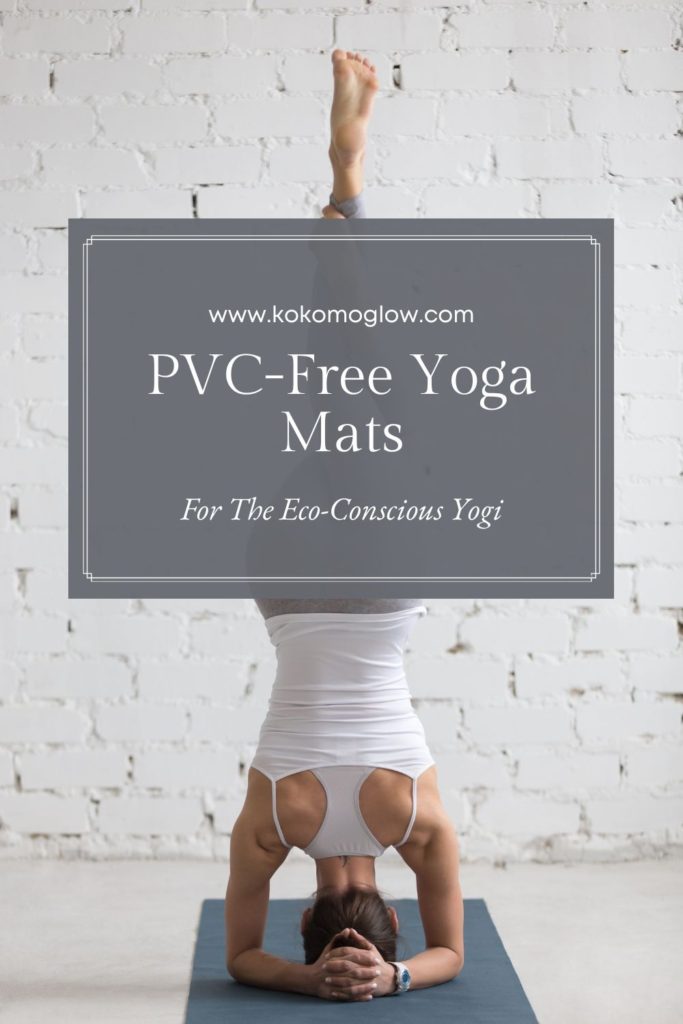
PVC yoga mats tend to be cheaper, but they’re not as durable, environmentally friendly, and there are health concerns. If this sounds like something for which you have concerns then read on because we’ve compiled fantastic non-toxic options at varying price points.
If you’re looking for a PVC-free, eco-friendly, non-toxic yoga mat, here are a few of the top options for 2022:
1. Jade Yoga Harmony Rubber Mat

If you want a rubber yoga mat then I recommend this one! Here are some features from the product page:
- Natural rubber material, free of PVC, EVA or synthetic rubber materials
- Great grip, and durable
- Company plants trees for every yoga mat sold
- Made in the USA
2. Scoria Cork Yoga Mat

I love their designs, they have many to choose from on their site. These yoga mats are on the spendy side, but people state it’s worth the investment. This is the yoga mat brand I plan on purchasing. Here are the product features from the product page:
- Comes with Scoria’s mat carry strap
- Backed by natural tree rubber unlike other mats with synthetic TPE/PVC
- Ultra-grip with sweat, lose the towel
- Naturally anti-microbial cork surface eliminating odor
- Sustainably harvested
- Perfect for hot yoga, gentle yoga, meditation, stretching
- Spray with water to activate sweat-grip in cold practices until body is warm.
- Backed by a 1 Year Limited Warranty
3. Jade Yoga Organic Cotton Mysore Yoga Rug

If you are interested in an organic cotton mat then give this one a try! Here are some features from the product page:
- Organic cotton
- Machine washable
- Natural dyes
- Great for outdoor use
- With the purchase of each rug, Jade provides one week of hot lunches to a child in need in India.
- These rugs are handwoven by rural artisans in India, preserving a tradition and art form and providing a livelihood for weavers.
4. Manduka eKO Lite Yoga Mat

If you are looking for a travel yoga mat, or a light weight one in general check out this one! Here are some of the features from the product page:
- Great for on the go, easily rolls and fold for portability
- Absorbent, and durable
- 100% natural tree rubber with non-toxic foaming agents, non-azo dyes, no PVC or harmful plasticizers
- People give it rave reviews
5. Hugger Mugger Para Rubber Yoga Mat

Another rubber mat option. Here are the features from the product page:
- Superior, non-slip grip on both sides
- Eco-friendly and sustainably sourced renewable rubber, 1/4″ thickness with excellent cushion and shock absorption
- Streaked with a colorful, serene pattern, durable and long-lasting
- Do not use if you have a latex allergy
- Made in Taiwan
6. GURUS Sweat Proof Durable Cork Yoga Mat

Another great cork yoga mat option here! People seem to love this mat and it gets high reviews. Here are some of the product features:
- Grippy surface
- Cork material with rubber backing
- Durable and resilient
Final Thoughts
PVC yoga mats may pose some health and environmental concerns. However, there are safer, non-toxic alternatives like rubber, cork, jute, and organic cotton available on the market. When choosing a PVC-Free yoga mat, consider your needs and budget. Choose a mat that’s comfortable and performs well so you can enjoy your yoga practice.
Namaste!
Brekke Jo

